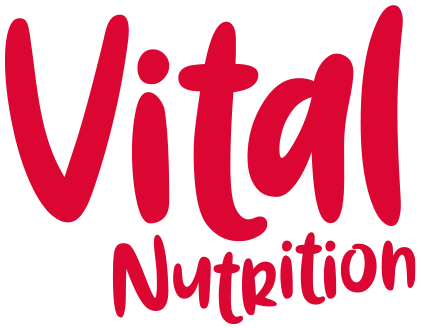Self care for carers
Carers are the unsung heroes in our society. These superheroes look after family members or friends who have a disability, illness, mental health condition, addiction, or who need extra help as they grow older. Carers often put their own needs at the bottom of their busy to do list.
It’s carers’ week, so if you are a carer, this one is for you!
Caring for a loved one comes with its challenges that can affect what you choose to eat. This can be because of the restricted diet of your cared for person, high levels of stress affecting your time and appetite to nourish yourself with healthy food, or trying to stick to eating well on a tight budget.
Of course, all of this can impact your physical health as well as your mental wellbeing. New research published for carers’ week found that 48% of carers have seen their mental or physical health deteriorate since taking on a caring responsibility for someone.
Putting yourself higher up your to-do list and shining a little focus on the food you choose to eat can have a positive impact on your energy and resilience to stress, improve your sleep and mood and build your resistance to illness by supporting a healthier immune system. All of this will give you what you need to give your loved ones the best of you, without leaving you depleted.
Here are some simple ideas to help you look after yourself well.
Plan ahead. One of the characteristics of most carers I know is that life can be unpredictable, so a little bit of forward planning will make all the difference. Simple things like setting the table for breakfast the night before so that you sit down and eat, or soaking your overnight oats and making enough for 2 days can be simple ways to ensure you get a good breakfast.
A few store cupboard essentials like tinned fish, eggs, frozen fruit and vegetables, or pre-packed wholegrains that can be microwaved or used as a base for a quick super salad at lunchtime or served with dinner will save time too.
Make once, eat twice! It won’t take more time or effort to make enough of those overnight oats or wholegrain super salads to do an extra portion or two. When you are taking the time and making the effort to cook a meal, think ahead. I know this sounds a bit cheesy, but it is useful to think about - what can you do now that your future self will thank you for? For example, chopping extra veg as you make tonight’s tea to make carrot batons, celery sticks or red pepper crudites – pop them in a tub for the fridge for a healthy snack, or as part of a quick lunch tomorrow. Bulk out your Bolognese, curry or chilli with some lentils, beans or extra veg – not only will you add extra nutrition, but it means there will be enough leftover for tomorrow, or a portion for the freezer to pull out for a quick meal on a busy day.
Don’t be tempted to skip meals. Remember, food is fuel. Skipping meals is likely to leave you feeling fatigued and can add to the stress load. Where possible, keep your mealtimes regular. Even if you can grab a quick bite, it is better than nothing.
Add some healthy snacks to your shopping list. Fruit (fresh, dried, frozen or tinned), Greek or natural yoghurt, houmous, cheese, oatcakes, nuts, dark chocolate (70-85%). Having this sort of food handy means you will be less likely to grab another slice or toast, reach for sugary snacks or fuel on caffeine in between meals. Some of these are non-perishable, so are great for the days filled with appointments or hospital visits too.
Keep it simple. Focus on what you can do for yourself. What is manageable? What will be easy? Don’t add diet to your stress load – you have enough going on as it is. Keeping a water bottle topped up so you are well hydrated, or adding an extra portion of vegetables (fresh or frozen) to your dinner plate is good enough. All the little healthy things you do will soon add up. Look after yourself.
carersweek.org

